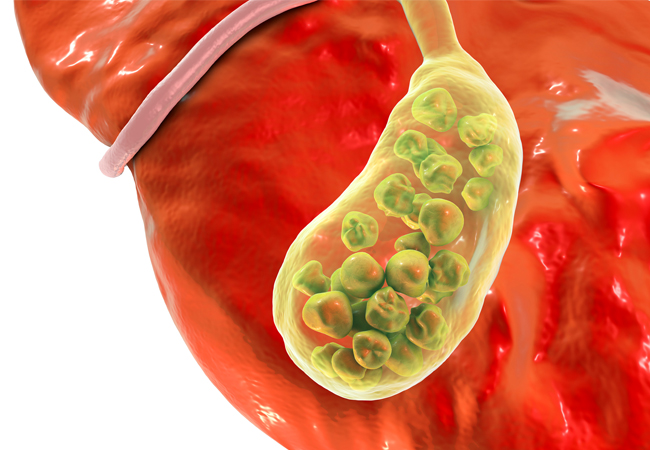Gallstones may sound scary, but we’re here to explain them in simple terms. In this guide, we’ll explore what gallstones are, why they form, common symptoms, and how they’re treated, so you can understand and manage them better.

What are Gallstones?
Explaining “what are gallstones” is like describing tiny rocks in our body’s plumbing system. This section will define gallstones as small, pebble-like deposits that form in the gallbladder, a small organ that helps with digestion.
Causes of Gallstones
Understanding the “causes of gallstones” is like unraveling a mystery. This section will discuss factors like excess cholesterol, bile imbalance, and certain medical conditions that contribute to gallstone formation.
Common Symptoms
Recognizing “common symptoms” is like spotting warning signs in our body’s messaging system. This section will describe symptoms such as abdominal pain, nausea, vomiting, and jaundice, indicating a possible gallstone problem.
Treatment Options
Exploring “treatment options” is like exploring a toolbox for fixing plumbing issues. This section will outline treatments like medication, dietary changes, and surgery, depending on the severity of gallstone-related symptoms.
- Dietary Changes: Adopting a low-fat diet rich in fruits, vegetables, and whole grains can help reduce the frequency and severity of gallstone symptoms. Avoiding fatty and fried foods can also alleviate discomfort.
- Hydration: Staying hydrated by drinking plenty of water throughout the day helps keep bile flowing smoothly and may aid in the prevention of gallstone formation.
- Herbal Remedies: Certain herbs like dandelion, turmeric, and peppermint may have properties that support gallbladder function and promote bile flow. Consult with a healthcare provider before using herbal supplements.
- Apple Cider Vinegar: Consuming diluted apple cider vinegar may help break down gallstones and alleviate symptoms. Mix one to two tablespoons of apple cider vinegar in a glass of water and drink it before meals.
- Lemon Juice: Drinking lemon juice mixed with warm water in the morning on an empty stomach may stimulate bile production and aid in the dissolution of gallstones.
- Castor Oil Packs: Applying a warm castor oil pack to the abdomen may help reduce inflammation and discomfort associated with gallstones.
- Physical Activity: Regular exercise can help improve digestion, maintain a healthy weight, and reduce the risk of gallstone formation.
Preventive Measures
Encouraging “preventive measures” is like sharing tips for maintaining a healthy plumbing system. This section will include lifestyle changes, such as eating a balanced diet, staying hydrated, and avoiding rapid weight loss, to reduce the risk of gallstone formation.
Gallstones may seem daunting, but by understanding their causes, symptoms, and treatment options, you can take control of your health. Whether you’re experiencing symptoms or want to prevent gallstones, this guide equips you with the knowledge to make informed decisions and manage gallstone-related concerns effectively.




